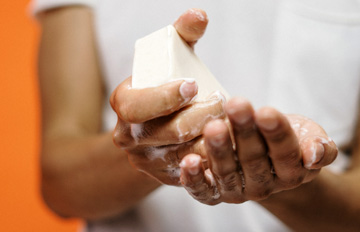Though many of the country’s medical resources at present are focused on the battle against novel coronavirus (COVID-19), that doesn’t mean that routine medical care will be neglected. Specialists like Dr. Kaplan and his team at Adult & Pediatric Dermatology (APD) in Overland Park will continue to provide the exceptional care that our patients expect while making sure that their patients remain safe.
Overview of Coronavirus (2019-nCoV)
There is a lot of conflicting information out there on the novel coronavirus that is currently affecting our population. New research comes out every day and unfortunately social media has spread both rumor and truth very far.
Are Dermatological Patients at Heightened Risk?
Most dermatological patients do not appear to be at heightened risk for complications associated with COVID-19 beyond underlying inherent risk to age or comorbidities.
Rashes Due to COVID-19
There have been a variety of rashes reported to be associated with COVID-19 including red scaly rashes, hives, bruises, bluish toes and livedo patterns, though not one specific rash has been associated with COVID-19. The American Academy of Dermatology (AAD) has established a COVID-19 registry for physicians and health care professionals treating COVID-19 patients who develop dermatologic manifestations, or patients with an existing dermatologic condition who develop COVID-19. Over time, we anticipate having more information about skin symptoms.
Skin Conditions/Treatments
The exact causes of conditions like psoriasis, severe eczema and atopic dermatitis are still unknown, but many medical researchers believe these conditions occur in response to an overactive immune system.
Patients with these conditions are sometimes treated with immunosuppressant drugs, which have the potential to make these patients more susceptible to infection. Immunosuppressant drugs can help stop the inflammatory cycle. Once symptoms are under control, patients are typically weaned off them and begin relying upon topical medications for relief. While patients are taking immunosuppressant drugs, however, they may be more susceptible to viral infections like COVID-19. However, recent information suggests that survival in COVID-19 patients may be increased when treated with immunosuppressive therapies as recently reported with dexamethasone which is a corticosteroid used systemically.
As for guidance on the use of systemic immunosuppressive agents: currently, the Centers for Disease Control and Prevention (CDC) and the World Health Organization (WHO) have no guidelines on the use of systemic immunosuppressive agents during the pandemic. The main priority for dermatologists, at this point, is to continue to provide the best possible care for patients with skin disease, and in doing so, to keep our patients out of emergency rooms and urgent care to not burden the healthcare system unnecessarily. Dermatologists must delicately balance the risk of immunosuppression with the risk of disease flare requiring urgent intervention with patient-specific risks. Therefore, the Academy strongly recommends that patients should not stop their ongoing systemic immunosuppressive therapy without consulting their physicians.
Skin Complications with COVID-19
Skin complications in COVID-19 infection are mostly caused by constant use of personal protective equipment and personal hygiene measures. Burning, itching and stinging of the skin has been commonly associated with extended wear of protective equipment. Prolonged contact with goggles and masks may cause various cutaneous diseases and healthcare workers have always been susceptible to acne, facial itching and dermatitis due to their protective gear.
There have been some early reports suggesting an increase in perioral dermatitis, acne, and possible staphylococcal infections due to retained moisture from the constant wearing of facial masks.
Hand dermatitis may result from excessive hand washing and hand sanitizing. Using a skin protective cream can help prevent many skin issues related to the preventative measures in COVID-19 transmission. Hand moisturizers vary in their ability to prevent hand dermatitis and there are nonsteroidal options available to treat rashes when OTC treatment is insufficient.
Guidelines for Dermatologists and Our Commitment To You
The American Academy of Dermatology (AAD) has been proactive when it comes to helping dermatology patients stay safe and has issued COVID-19 guidelines, which Dr. Kaplan and his team at Adult and Pediatric Dermatology are following. In this time of uncertainty, we are taking the following precautions to provide safe, prompt and accurate dermatological care options:
- Currently, our office is open Monday-Thursday with limited hours to provide face-to-face dermatological care as we understand skin conditions continue to arise. Please do not come to our office if you have a fever or feel under the weather.
- We office telemedicine appointments. Contact the office to see if this option is the best fit for your and your family’s needs. These virtual appointments are a great alternative for medication refills and to discuss and/or treat many common skin conditions.
- In the office, we are following strict social distancing and sanitation guidelines as directed by the AAD and CDC. We are sanitizing all surfaces before and after each patient visit to keep patients and employees safe.
- We know that the current situation is constantly changing and in the event of changes, we will contact patients whose appointments would be affected to make sure you are rescheduled. We appreciate your patience and understanding.
At Adult & Pediatric Dermatology, our caring professionals are here to continue to provide high-quality dermatology services to our patients throughout the current novel coronavirus crisis. Rest assured that should you need to come into our office for acute care or emergency treatment, we will safeguard your well-being through our strict adherence to social distancing and the sanitation guidelines. Contact our office today at 913-469-1115 for more information and to schedule an appointment.

